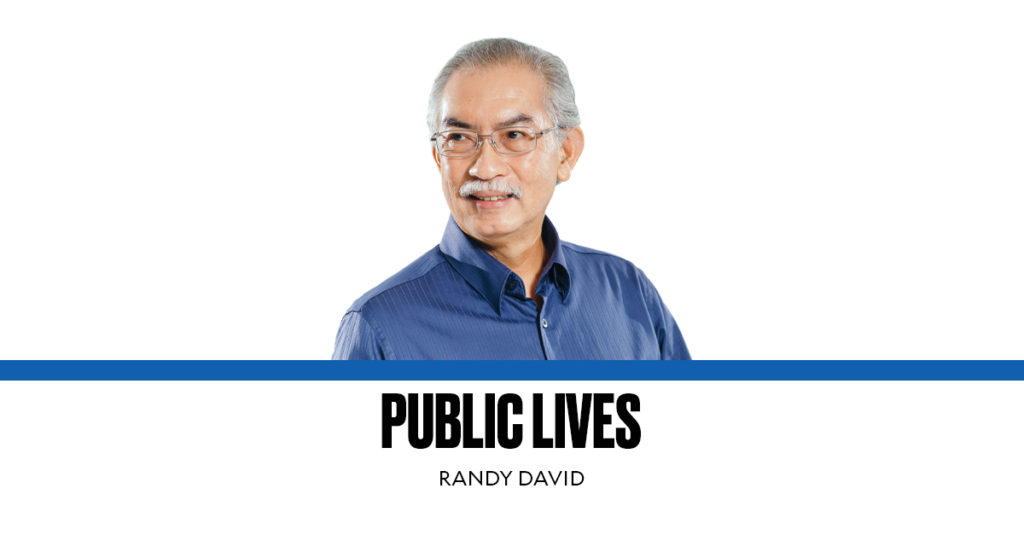It’s difficult to say what exactly defense chief Delfin Lorenzana and his strategists at the Department of National Defense intend to do, following the DND’s unilateral termination of a 1989 agreement that binds the military and the police to coordinate with University of the Philippines authorities when there is a need for state security forces to perform their functions within school premises.
Secretary Lorenzana said that they only want to be able to enter the university’s campuses at any time, and to do whatever it is they need to do, without having to notify anyone in the university.
Why do they seek this? According to them, there is a clear and present danger from which they must urgently protect UP students—and that is the danger posed by recruiters of the armed communist movement. They suspect that some faculty members are actively doing the recruiting themselves.
Lt. Gen. Antonio Parlade Jr., the vociferous spokesperson for the National Task Force to End Local Communist Armed Conflict, does not think that UP has done anything to stop this menace. In an ANC interview, he said: “You freely allow your faculty who are members of the CPP to conduct this subtle training and recruitment of these students. You know that, and you are not doing anything about that, then there’s really a problem.”
With the UP-DND agreement out of the way, General Parlade believes the military can now directly communicate with the students. “We can organize seminars and briefings for the students, and explain to them the difference between legitimate activism and terrorism, because there’s a very thin line between these two.”
I suspect there’s more to this than the military’s professed desire to protect UP students from communism. I am quite sure the university academic community, being what it is, a forum for all kinds of ideas, would have no problem accommodating the general’s ardent wish to lecture to UP students. (He would have to be prepared to answer all sorts of questions from a discerning and often irreverent audience. And he would have to refrain from bringing in military personnel to take videos or snapshots of people at these seminars—anything that may be taken as a form of intimidation.)
Indeed, we used to hold seminars like these back in the ’80s, when I was director of the Third World Studies Center in UP Diliman. We invited defense officials, military putschists, politicians, technocrats, religious leaders, ideologues, and heads of social movements and people’s organizations to meet and explain their views and advocacies to academe. These invitations were akin to being led into the lion’s den: One could be cheered, heckled, or mocked at these events. But the one thing that was never excused or tolerated was any form of violence directed at our invited guests.
Our visitors came away from these encounters, most of the time, with a renewed faith in the power of reason and dialogue to lend clarity to complex issues, and, as importantly, to build trust. The readiness to engage government, particularly its security forces, was particularly important in those years following the collapse of the Marcos dictatorship.
Because they were at the forefront of martial law repression, the military and the police were seen as academe’s enemy. At no other time were the conditions for the radicalization of university campuses more ripe than during those years when armed agents of the state could freely swoop down on institutions of higher learning to do surveillance work or to arrest students and professors. With redemocratization in 1986 came the need to heal the antipathy between the citizenry and the state.
The UP-DND accord was a symbolic product of those trust-renewing efforts. Secretary Lorenzana completely misunderstood its import by depicting it as a grant of elitist privilege to UP. It was not. It was part of a post-authoritarian initiative to cultivate goodwill, and one of the keys was the restoration of respect for the autonomy of academe.
Today, the Duterte administration, through the defense department and its chief lackey in the Commission on Higher Education (CHEd), appears bent on breaking that autonomy. In the guise of maintaining peace and order in its campuses (one would think UP has become an ungovernable war zone or one huge shabu laboratory), it is clear to me they seek greater operational control over the university.
Apart from the counterinsurgency seminars sought by General Parlade, one could more or less guess what else might be coming to UP. Sooner than we think, they could be demanding a say in faculty and administrative appointments, possibly requiring military clearance as a prerequisite to an appointment to a tenured position. They could also be angling to play a role in the university’s disciplinary system. UP has to watch out for all kinds of interference in its affairs as a collegial and self-governing community. Of these, the most blatant would be the insertion in the regular curriculum of courses wholly defined and formulated by actors outside of academe.
The military doesn’t know what it’s getting into by wanting to exercise, through collusion with CHEd, such powers over academe. They could be opening a whole Pandora’s box of revolts within universities, potentially pitting students and faculty against their administrators and governing boards, or, worse, the entire academic community against the government. Rather than prevent the radicalization of students, they could be forcing more of them to go underground.
——————
public.lives@gmail.com
